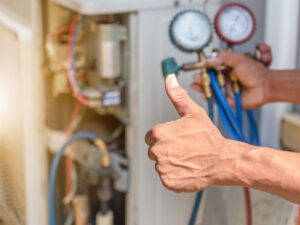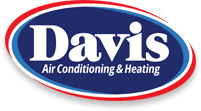Start Saving Energy With These Simple Home Solutions
As the hottest days of summer get closer, your home energy use will increase along with your electric bills. A few simple short-term changes, along with some other techniques you can implement over time, will reduce your energy consumption and trim costs in both summer and winter. Here are some ways you can start saving energy immediately and throughout the next year.
Immediate Ways to Start Saving Energy
- Clean or change HVAC filters: The filters in your air conditioner, furnace or heat pump remove various particles from the air circulating through your heating and cooling system. Dirty filters reduce HVAC system effectiveness and increase energy usage. Put clean filters in your HVAC equipment to increase system efficiency and effectiveness and improve indoor air quality. Check filters monthly and change them when necessary.
- Lower water heater temperature settings: Water heating consumes significant amounts of energy. Turn your water heater down to 120 degrees. This maintains a hot-water temperature that is adequate for most purposes and less likely to cause scalding.
- Replace aging appliances and HVAC equipment: As your household appliances and HVAC systems get older, their energy efficiency will drop considerably. Most of them were much less efficient than similar modern products to start with. They will also be less effective at the job they were designed for. If your furnace, air conditioner, heat pump, refrigerator or other appliances are nearing the end of their useful lives, you’ll benefit from replacing them with a high-efficiency model as soon as possible.
- Use energy-efficient light bulbs: Replace standard incandescent light bulbs with newer, more efficient compact fluorescent (CFL) bulbs that are designed to slash energy consumption by as much as 75 percent. CFL bulbs also can reduce heat gain associated with home lighting. Pay particular attention to lights that are left on for several hours at a time; these are the best candidates for energy savings with CFL bulbs.
- Make your waterbed properly: If you have a waterbed, don’t leave the sheets and blankets in disarray. Making the bed properly will allow the sheets and covers to insulate the bed and save as much as a third of the energy it takes to keep the bed heated.
- Look for and use energy-saving settings on appliances: Many household appliances will have energy-saving settings that use, for example, less electricity or hot water. Take advantage of these settings to trim energy expenditures and cut your bills.
Longer-Term Ways to Start Saving Energy
- Insulate your water heater: Install an energy-saving water-heater blanket or other insulator for your older storage tank water heater. (Newer models usually come pre-insulated.) Your hardware store or HVAC supplier should have commercially made insulating sheaths for water heaters.
- Use low-flow plumbing fixtures: Install low-flow faucet aerators, showerheads, and other water-saving plumbing fixtures. These devices provide plenty of water for sinks and showers but decrease hot-water flow and overall water usage.
- Seal leaky doors and windows: Gaps between doors and windows and their frames can cause significant energy loss. Make sure these areas are sealed with caulking or weatherstripping to prevent air movement between inside and outside in all seasons.
- Find and seal air leaks: Other gaps, cracks, holes and openings in your home’s walls can allow substantial energy loss and waste of resources. Locate these leaks and seal them with caulking or other appropriate material. If leaks are hard to detect, ask your HVAC professional about tests that can isolate and identify the source of air leaks.
- Increase insulation: Insulation prevents heat from entering your home in the summer and escaping in the winter. Install insulation in uninsulated walls, crawl spaces, attics, basements and foundations. Increase the amount of existing insulation, especially where insulation may be inadequate. Insulate the ductwork in your HVAC system to prevent air and energy loss while conditioned air is being distributed; leaky ducts can account for large amounts of wasted energy. Insulate hot water pipes to decrease heat loss through the metal of the pipes themselves.
- Schedule annual preventive maintenance: Have your heating and cooling systems inspected and tuned up at least annually. The best time for this preventive maintenance is right before heating or cooling season starts. Annual maintenance will keep your furnace, air conditioner or heat pump working at its best and will help identify and fix minor issues before they become full-scale problems later.
Davis Air Conditioning and Heating has more than 43 years of experience in the HVAC industry, serving customers in Houston, Angleton, Ft. Bend, Galveston, Sugar Land and Brazoria. Contact us today for more information on simple but effective changes you can make to start saving energy in your Texas home.
Image Provided by Shutterstock.com
You May Also Like

Is My Heat Pump in Fort Bend, TX, Low On Refrigerant?
Your heat pump hums through the cool January mornings in Fort Bend, TX, but something feels off. The air trickling from your… Continue Reading Is My Heat Pump in Fort Bend, TX, Low On Refrigerant?…

How Often Should I Change My HVAC Filter in Pasadena, TX?
The crisp winter air sweeping across Galveston Bay might feel refreshing outdoors, but inside your Pasadena, TX, home, your HVAC system works… Continue Reading How Often Should I Change My HVAC Filter in Pasadena, TX?…

Should I Repair or Replace My Furnace in Houston, TX?
The mercury’s dropped, your furnace is making strange sounds, and you’re wondering whether to nurse it back to health or send it… Continue Reading Should I Repair or Replace My Furnace in Houston, TX?…
